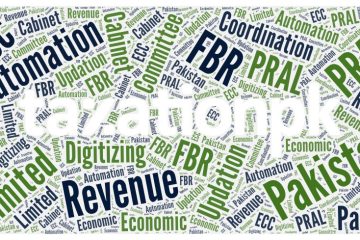ISLAMABAD: The Federal Tax Ombudsman (FTO) has issued a directive to the Federal Board of Revenue (FBR) to formulate a comprehensive Standard Operating Procedure (SOP) to guide non-filing taxpayers in reactivating their blocked mobile SIM cards. This directive is part of FTO’s efforts to address grievances faced by non-filers whose SIMs were deactivated under recent FBR policies.
The FTO’s order, issued on Monday, instructs the FBR Chairman to seek an explanation from the concerned officer for not attending scheduled hearings related to the issue. This lack of responsiveness has raised concerns over FBR’s handling of taxpayer grievances.
The investigation highlighted that under Section 114B of the Income Tax Ordinance, 2001, the FBR had recently blocked the SIMs of 506,671 taxpayers. This action, formalized under Income Tax General Order (ITGO) No. 1/2024, targets individuals who are categorized as “Inactive Taxpayers.” However, the order does not provide any SOP for these individuals to reactivate their SIMs, stating only that the SIMs will remain blocked until an authorized directive from the Commissioner or FBR is issued.
One specific complaint, identified as Complaint No. 5785/ISB/IT/2024, highlighted cases where taxpayers on the Active Taxpayers’ List (ATL) had their SIMs deactivated.
Additionally, there have been reports of SIMs remaining blocked even after taxpayers filed their tax returns and paid the required ATL surcharge. Business Recorder
The FTO’s investigation revealed that no formal guidelines or written procedures are currently in place to instruct taxpayers on how to reactivate their SIMs once they comply with tax filing requirements and regain active taxpayer status. This absence of a clear process has led to confusion and inconvenience for taxpayers, many of whom rely on their mobile SIMs for essential communications.
The FTO’s order pointed out that the lack of an SOP in the ITGO issued on April 29, 2024, creates hardship for taxpayers and amounts to administrative deficiencies. The order cited these issues as “maladministration” under section 2(3)(ii) of the FTO Ordinance, 2000.
Furthermore, the order criticized the IR (Operations Wing) for failing to attend hearings despite being issued notices twice. This lack of engagement reflects poorly on the operational efficiency of the IR Wing, underscoring the need for better management and accountability.
The FTO’s directive calls on the FBR to promptly develop an SOP to assist taxpayers in reactivating their SIMs, thereby reducing the hardships currently faced by non-filers and improving the FBR’s responsiveness to taxpayer concerns. This move is expected to create a more transparent and taxpayer-friendly process, reinforcing the FBR’s commitment to addressing taxpayer grievances effectively.






